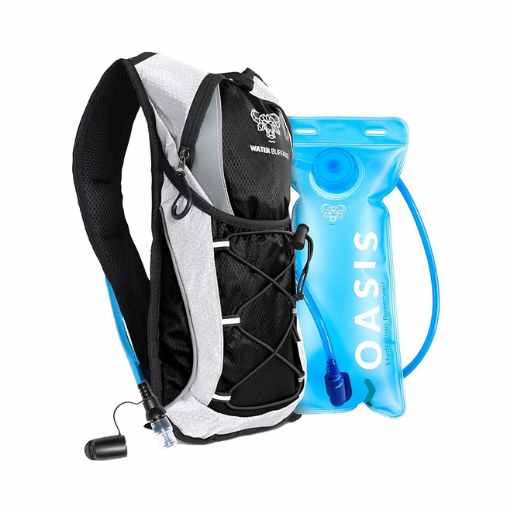Dear Runners!
We know you are so excited about tomorrow’s marathon event. As the big day approaches, it’s crucial to ensure you’re fully prepared both physically and mentally. To help you make the most of your marathon experience, we’ve put together a comprehensive guide with detailed tips to follow before the event. Let’s dive in!
1. Finalize Your Training
Completing your marathon training plan according to the schedule is essential. During the final week leading up to the marathon, it’s important to focus on tapering your training. Tapering involves reducing your mileage and intensity, allowing your body to recover and build energy reserves. Avoid intense workouts or long runs in this period to prevent fatigue and injury. Instead, engage in light, short runs, and stretching exercises to keep your muscles loose and ready.
Tips:
- Stick to your planned taper schedule.
- Replace intense runs with gentle jogs or walks.
- Include light stretching and yoga sessions to maintain flexibility.
2. Hydrate and Eat Well
Proper hydration and nutrition are critical for optimal performance. Throughout the week leading up to the marathon, drink plenty of water to stay hydrated. Aim for at least eight glasses of water a day, but listen to your body and drink more if needed, especially if it’s hot or if you’ve been sweating a lot.
When it comes to nutrition, focus on consuming balanced meals that include carbohydrates, proteins, and healthy fats. Carbohydrates are your primary source of energy, so ensure your meals are rich in complex carbs like whole grains, fruits, and vegetables. Proteins and healthy fats are also important for muscle repair and sustained energy.
Tips:
- Avoid trying new foods or supplements that may upset your stomach.
- Eat regular, balanced meals with a good mix of macronutrients.
- Consider carrying a water bottle to ensure consistent hydration.
3. Get Plenty of Sleep
Adequate sleep is vital for recovery and performance. In the days leading up to the marathon, aim to get at least 7-9 hours of sleep per night. Creating a relaxing bedtime routine can help improve your sleep quality. Avoid caffeine and electronic devices before bed, as these can interfere with your ability to fall asleep.
Tips:
- Stick to a consistent sleep schedule, even on weekends.
- Create a calming pre-sleep routine, such as reading a book or taking a warm bath.
- Ensure your sleep environment is comfortable and free from distractions.
4. Review Race Logistics
Being familiar with race logistics can help reduce pre-race anxiety and ensure a smooth race day experience. Review the race details, including the start time, location, and parking options. Plan your travel route to the race venue and allow extra time for unexpected delays. Check if there are any pre-race activities or ceremonies that you might want to attend.
Tips:
- Print out or save important information on your phone.
- Plan for contingencies, such as alternate routes or additional travel time.
- Familiarize yourself with the race course and water station locations.
5. Prepare Your Gear
The night before the marathon, lay out all your race-day gear to ensure you have everything you need. This includes your running shoes, apparel, bib number, timing chip, hydration belt or water bottle, energy gels, chews or snacks, sunscreen, and any personal items you may need. Double-check that everything is in good condition and ready to go.
Tips:
- Lay out your gear in a way that you can easily access everything.
- Check the weather forecast and adjust your gear accordingly.
- Ensure your shoes are broken in but not worn out.

6. Visualize Success
Visualization is a powerful mental technique that can help boost your confidence and mental toughness. Take some time to visualize yourself crossing the finish line strong and achieving your goals. Imagine the sights, sounds, and emotions you will experience. This mental rehearsal can help reduce anxiety and improve your focus.
Tips:
- Spend a few minutes each day visualizing different parts of the race.
- Use positive affirmations to reinforce your confidence.
- Picture yourself overcoming challenges and finishing strong.
7. Stay Relaxed and Manage Stress
It’s natural to feel nervous before a big race, but managing stress is key to performing well. Practice relaxation techniques such as deep breathing, meditation, or yoga to keep stress levels in check. Engage in activities that help you unwind and stay calm, such as spending time with loved ones or enjoying a leisurely walk in nature.
Tips:
- Practice deep breathing exercises to calm your mind and body.
- Use mindfulness techniques to stay present and focused.
- Surround yourself with supportive and positive people.
8. Stay Positive and Trust Your Training
Believing in yourself and your preparation is crucial. Trust in the hard work and dedication you’ve put into your training. Stay positive and focus on the excitement and anticipation of race day. Remind yourself of your achievements and the progress you’ve made.
Tips:
- Reflect on your training journey and how far you’ve come.
- Use positive self-talk to counteract any negative thoughts.
- Set small, achievable goals for the race to keep you motivated.
Additional Considerations of the day before a marathon
Pacing Strategy:
Plan your pacing strategy ahead of time. Starting too fast can lead to burnout while starting too slow might leave you with too much ground to cover. Aim for a steady, consistent pace that you can maintain throughout the race.
Race Day Nutrition:
Consider what you’ll eat on race day morning. A light, carbohydrate-rich breakfast 2-3 hours before the race can help fuel your run. Avoid heavy, greasy foods that might cause discomfort.
Warm-Up Routine:
A proper warm-up routine can help prepare your body for the physical demands of the marathon. Include dynamic stretches and a light jog to get your blood flowing and muscles ready.
Mental Preparedness:
Prepare for the mental challenges of the marathon. There will likely be moments of fatigue and doubt. Develop strategies to stay mentally strong, such as breaking the race into smaller segments or focusing on your breathing.
Post-Race Recovery:
Plan for your post-race recovery. Hydrate, refuel with a balanced meal and engage in gentle stretching to aid in muscle recovery. Consider scheduling a massage or taking an ice bath to reduce soreness.
Conclusion
By following these comprehensive tips of the day before a marathon, you can set yourself up for success and ensure that you’re physically and mentally prepared to tackle the marathon with confidence and determination. Remember, the marathon is not just a physical challenge but a mental one as well. Trust in your training, stay positive, and enjoy the experience. Good luck, and we look forward to seeing you at the finish line!

